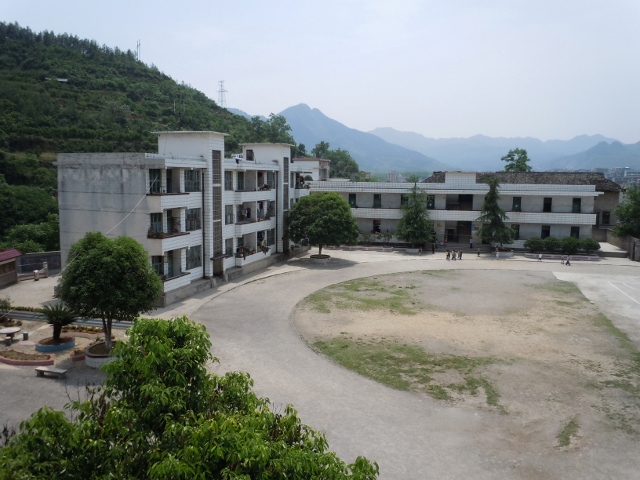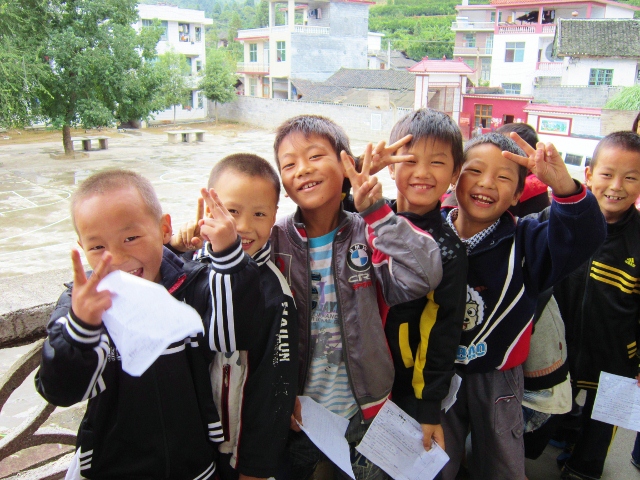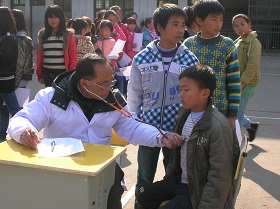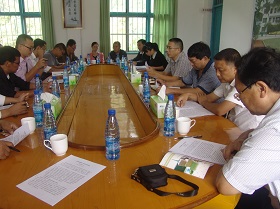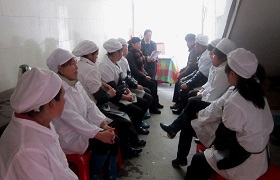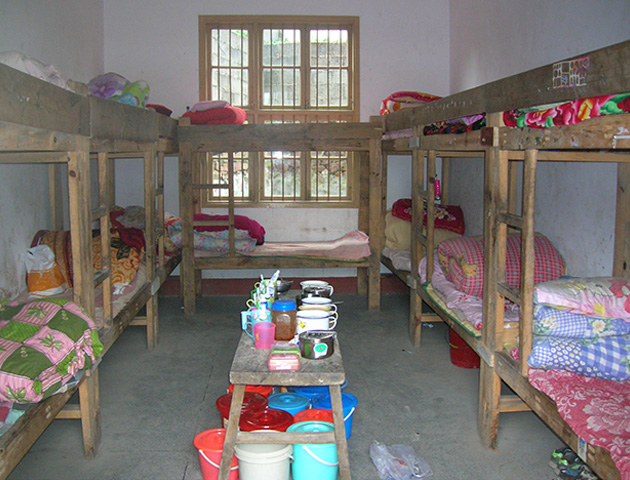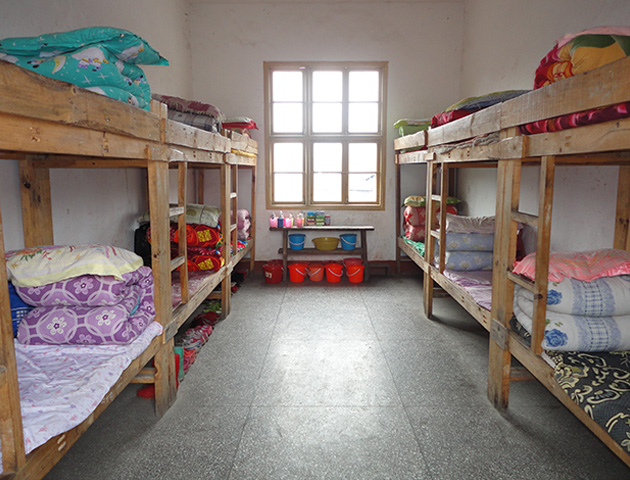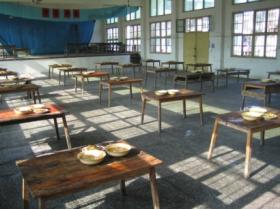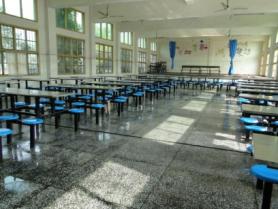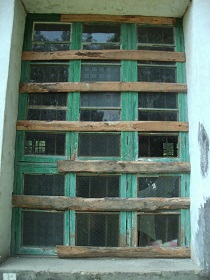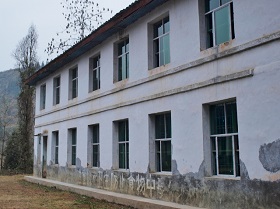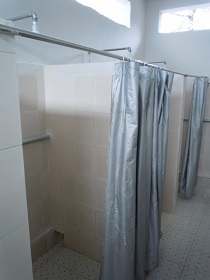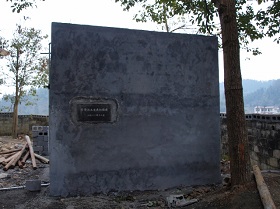Under the centralized school policy framed by the Chinese government, most primary school and secondary school students have already moved to larger-scale boarding schools. The sanitary conditions of the schools affect the health and upbringing of students directly and significantly. Yet, as for most schools in our service area, Baojing County in Hunan, the canteens, dormitories and toilets are of poor sanitary conditions. The majority of the schools lack a bathroom; water supply equipment is seriously insufficient.
Take Qingshui Primary School (清水小學) as an example, it has neither tap water supplies nor bathrooms. Students used to take showers in the rivers near the school. However, the school has banned students from going to any rivers again after an accident that a student had been drowned in a river. All the 650-odds teachers and students could only share six taps for daily water use.
On the other hand, due to the lack of resource and nutritional knowledge, the schools do not provide any health or hygiene education. Normally, their canteen menus are too simple that same dish can be served for an entire week sometimes. The lack of food diversification caused malnutrition for students. Students are then easy to suffer from related health problems such as developmental delay and deficiency of vitamin.
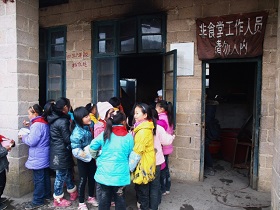 |
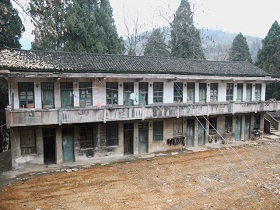 |
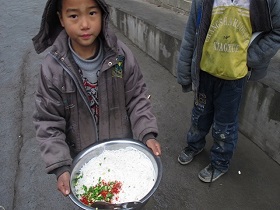 |


